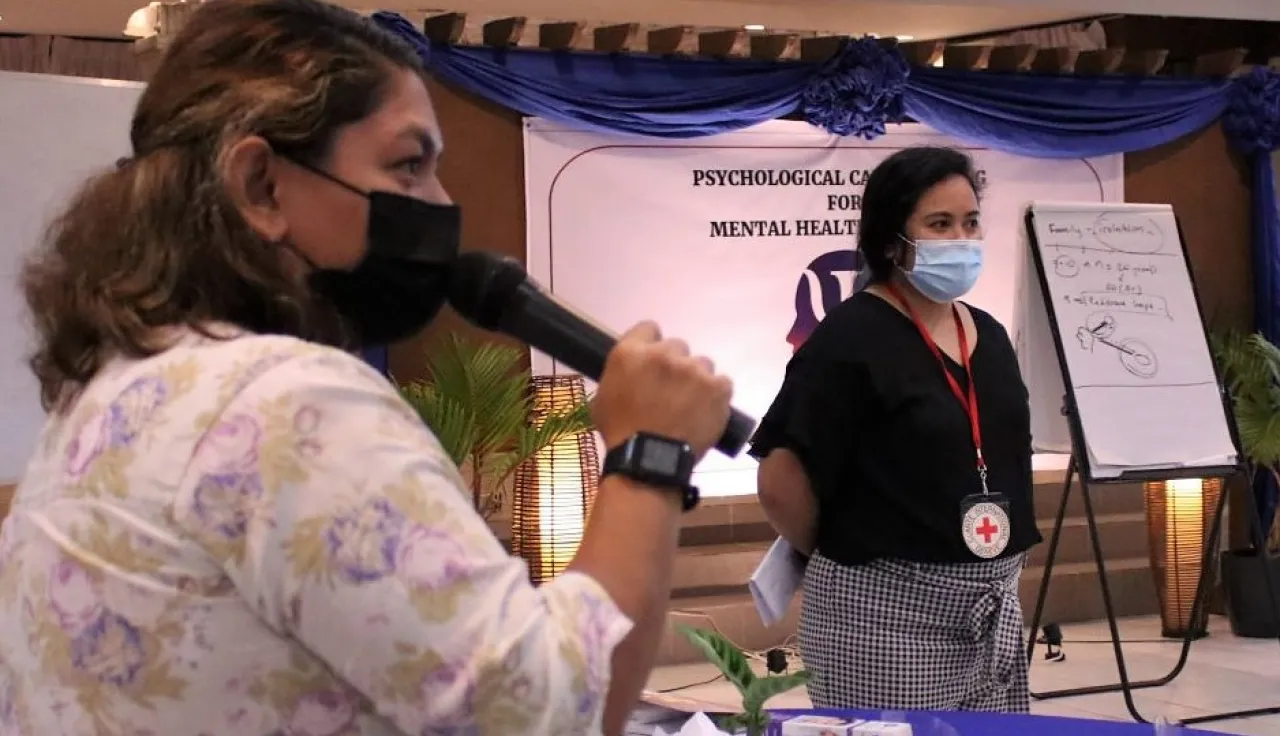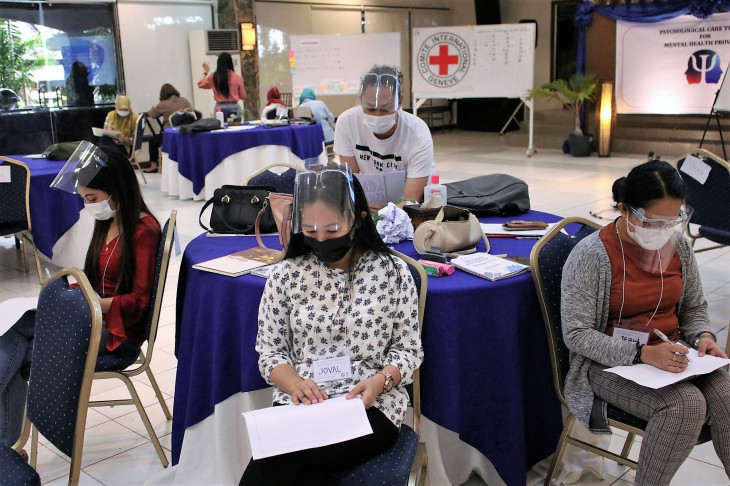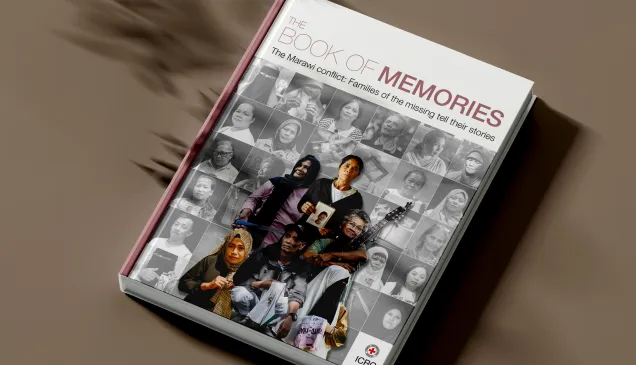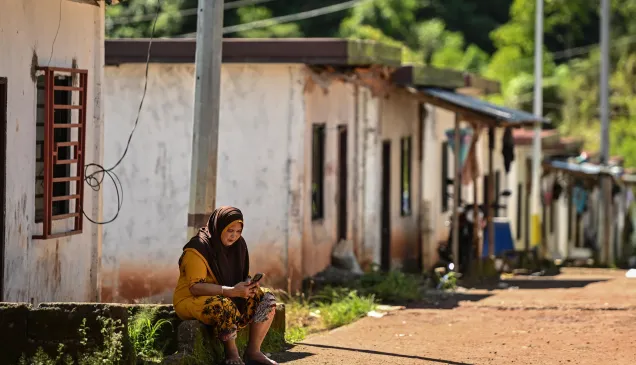Philippines: How we're helping build a stronger mental health workforce in Mindanao

Mental health must not be an afterthought in armed conflicts and emergencies like the COVID-19 pandemic.
But with limited resources and a widespread stigma on mental health, how can people have better access to the care they need?
People affected by conflict suffer from invisible wounds that hinder their ability to recover from trauma.
Families of persons who went missing in Marawi, for instance, struggle with ambiguous loss and face challenges in participating in everyday activities.
A year after the 2017 Marawi conflict, the ICRC looked at ways to create a network of available mental health and psychosocial support services (MHPSS) in Mindanao, southern Philippines.
The ICRC surveyed government health facilities, in particular, to cover quality psychosocial support and psychological care for victims of violence and other traumatic events.
"The gap in psychological care hinders the real estimation in mental health needs in the area, since there aren't enough professionals trained to assess and provide MHPSS support. Our Advanced Psychological Care Support programme aims to fill this gap in a sustainable manner," said Israel Arturo Medina Gasca, an ICRC MHPSS delegate based in Davao City.
A report by the World Health Organization showed there are only around 1,200 practicing psychiatrists, psychologists, and psychiatric nurses in the Philippines in 2020.
Stronger mental health workforce in Mindanao
The ICRC is helping bolster the mental health care system in Mindanao, where there are several conflict-affected areas, through a number of ways.
One of them is by training psychologists, health staff, and community leaders through basic and advanced capacity-building programmes.
Nineteen mental health practitioners from government institutions from all over Mindanao have joined our year-long Advanced Psychological Care Support (APCS) programme. They were chosen from areas where there are recurring emergencies and scarce mental health resources.
The Advanced Psychological Care Support (APCS) programme is divided into three parts:
- Training sessions that will enhance the skills and knowledge of mental health professionals
- Supervision sessions and on-the-job coaching led by ICRC
- Advocacy for the creation of a mental health programme at the institutional level (i.e., in hospitals)
The first APCS training session from 22 to 26 March was aimed at enhancing mental health workers' core competencies.
Equipping them with better skills and knowledge means they can provide better care to people with mental health needs, especially those that arise in armed conflicts, disasters, and now, the COVID-19 pandemic.

ICRC's Advance Psychological Care Support Programme complements the organization's other mental health and psychosocial support services in Mindanao.
For Rolf Marcus Villano, a psychometrician at the Department of Social Welfare and Development (DSWD) Processing Center for Displaced Persons, mental health should be prioritized just as much as physical health.
"In the case of depression, you can see individuals who act normally but we don't know they are deeply wounded aside. We have to treat mental health as equal to physical health, but we need to put more effort into it," he said.
Around 3.6 million Filipinos are battling mental health disorders since the start of the pandemic in 2020, according to the Department of Health.
Community of mental health professionals
Aside from improving their skills, mental health professionals are building peer-to-peer networks through the APCS.

Aufe Fallado, who teaches psychology at the Mindanao State University-Marawi City, said she can't wait for the ripple effect of the Advanced Psychological Care Support Programme.
"A common issue I heard is professional isolation," said Aufe Fallado, a faculty member of Psychology and Related Services at Mindanao State University (MSU). "The participants said they are the only mental health practitioner in their organization, so the burden is too much for them."
Job coaching is integral to the APCS. After the introductory training session in March, the ICRC's MHPSS team will regularly supervise and mentor the participants, in coordination with focal points of the health authorities.
This hands-on approach will allow the ICRC to better understand the needs of the mental health workers' clients.
Afterwards, the participants will learn topics that are tailored for them in a specialized training session, which will then be followed by an evaluation workshop.
Long-term solution for mental health services
Through the APCS, the ICRC hopes the participants can establish a referral system for MHPSS services in Mindanao.
This way, everyone – even those who are not affected by crises – will have better access to mental health care services.
Aside from the aftermaths of the Marawi conflict, other sources of distress impact the mental well-being of the general population.
Although the training session is focused on those affected by the violence, other people that require mental health support can approach their barangay health facility for help: They will be pointed in the right direction, if services are not available, with no distinction.
Fallado agreed that it's crucial for people to know where to get mental health assistance.
"It's important to know where to get help," she said. "In emergencies and armed conflicts, knowing you have people to go to for help is a stress buffer."



